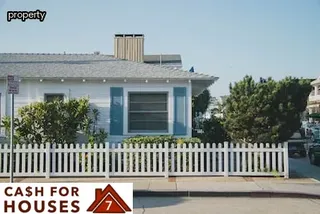Eviction is a difficult process for everyone involved, and understanding the reasons behind an eviction can help landlords and property managers make informed decisions. In Missouri, the length of time it takes to complete an eviction depends on the type of lease agreement between the landlord and tenant as well as the specific circumstances surrounding the situation.
Generally, if a tenant is behind on rent payments or has violated the terms of their lease agreement, they will receive a three-day notice to remedy or vacate. If they do not comply within that time frame, then landlords can initiate court proceedings which can take anywhere from two weeks to two months depending on whether there is an appeal.
Additionally, legal advice should be sought before pursuing any course of action to ensure all rights are fully protected in line with Missouri state law.

The Missouri eviction process is complex and can be lengthy. Landlords and property managers should understand how to navigate the court system and its associated timeline.
To begin an eviction, a landlord must provide notice in writing that outlines the reasons for the eviction. It’s important to note that the type of notice required may differ based on the situation and type of tenancy.
After giving notice, if the tenant does not comply with it, landlords may file an unlawful detainer lawsuit with the local court. The court will then issue a summons to both parties informing them of when they must appear in court.
At this stage, both landlord and tenant can present evidence regarding their side of the story. If a tenant fails to appear at their court hearing, then most likely the judge will rule in favor of the landlord.
Once a judgment has been made by the judge, a writ of possession is issued directing law enforcement officials to evict tenants who have not vacated within 24 hours after being served with notice. Depending on various factors such as time spent waiting for court hearings or delays due to paperwork, it can take several weeks from start to finish for an eviction in Missouri.
It is of utmost importance for landlords and property managers to serve the tenant properly during an eviction process in Missouri. This is because failure to do so can result in a lengthy and expensive legal battle, which can ultimately lead to lost time and money.
Serving the tenant properly means that landlords and property managers must follow all the laws regarding proper notice and filing of paperwork, as well as any additional rules set forth by the local court system. Furthermore, landlords should ensure that any notices provided to the tenant are properly delivered according to state law.
Additionally, it is important that landlords work with tenants throughout the eviction process in order to come up with a fair resolution for both parties. By doing this, landlords can reduce the amount of time it takes for an eviction to be finalized and prevent costly legal fees from accumulating.

When asking for possession of a property, it's important to be aware of the steps involved in the eviction process in Missouri. Landlords and property managers should understand that this is a long process that requires patience and an understanding of the relevant laws.
Before beginning the eviction process, it's essential to carefully review local laws to ensure all legal requirements are met. The first step is providing notice to the tenant that they must vacate the premises by a certain date; if they fail to do so, formal legal proceedings can begin.
Once initiated, landlords and property managers need to file paperwork at their local court and attend eviction hearings if necessary. Depending on the state, this entire process could take several weeks or even months before possession of the property is granted.
Knowing these steps can help landlords and property managers navigate Missouri's eviction process as smoothly as possible.
When a landlord or property manager needs to get possession of their rental, it is important to understand the eviction process in Missouri and how long it can take. Obtaining a legal judgement for possession is the first step in the eviction process, and this usually involves filing an eviction lawsuit with the court.
The court will then issue a summons that needs to be served on the tenant by either certified mail or personal service. After this, the tenant has up to 14 days to respond and if they do not respond within this time frame, the landlord may request a default judgement from the court.
If, however, the tenant does respond and disputes the lawsuit, then a hearing date will be set for both parties to present their case. After this hearing takes place, if the landlord wins they will receive a Writ of Possession which allows them to retake possession of their rental property.
However, depending on whether or not an appeal is filed by the tenant, the entire process can take anywhere between 15-30 days. It is important for landlords and property managers to fully understand their rights under Missouri law as well as all necessary steps in order to successfully evict tenants and regain possession of their rental units.

The eviction process in Missouri can be complex and lengthy, but it doesn’t have to be. By understanding the timeline of events that lead to a tenant being lawfully evicted from a rental property, landlords and property managers can ensure their rights are protected and the process is carried out correctly.
In Missouri, the eviction process typically begins with serving the tenant with a notice to leave. Depending on the reason for eviction, this notice period lasts anywhere from three days to 30 days.
Once the notice period has expired, landlords may file an unlawful detainer action with their local court if tenants have not vacated the premises. After filing, landlords must wait for a hearing date to be set by the court where they will need to present evidence that supports their case.
If successful at the hearing, tenants will receive an order requiring them to vacate within 10 days or face forcible removal by law enforcement officers. During this final stage of eviction, landlords should work closely with their local sheriff’s office to arrange for delivery of any remaining possessions left behind by former tenants as well as payment for any damages incurred during the move-out process.
When landlords and property managers are preparing to go through the eviction process in Missouri, they should know that presenting evidence is a crucial component in ensuring a successful outcome. The evidence should be organized and clearly demonstrate why the eviction is necessary.
Landlords should strive to submit all pertinent documents like leases, payment records, notices of violation, and any other relevant paperwork. Additionally, it’s important for landlords to provide testimony from witnesses if applicable.
Witnesses can include tenants who have seen or heard violations, neighbors who can testify about disturbances caused by tenants, or current or former employees who have knowledge of the situation. Furthermore, landlords should consider gathering photographic evidence to support their case such as pictures of damage to the property or any other relevant visuals.
With these measures in place, landlords and property managers will be well-prepared when going through the eviction process in Missouri.

When dealing with an eviction in Missouri, landlords and property managers often find themselves in unfamiliar territory. Fortunately, there are numerous free resources available online to help guide them through the process.
For example, the Missouri Bar Association offers a comprehensive booklet that outlines all of the laws associated with the eviction process in Missouri. This includes information on how to file for eviction, serve notice to tenants and handle tenant appeals.
Additionally, the Department of Justice provides a FAQ page that answers common questions related to landlord-tenant law in Missouri. Finally, Landlordology is a great resource for landlords and property managers as it has up to date articles on all aspects of tenancy law as well as state-specific advice on evictions and other legal matters.
With these helpful resources at their disposal, landlords can better navigate the eviction process in Missouri and ensure that they are compliant with all applicable laws.
The most common reason for filing a complaint in an eviction case in Missouri is nonpayment of rent. This is when the tenant has not paid the full amount of rent due or has been late with their payments.
Other reasons for a complaint might include breaking the terms of the lease agreement, such as having unauthorized occupants or pets, damaging property, creating nuisance or health hazards, or engaging in illegal activities on the premises. Tenants can also be evicted for violating local laws regarding noise and garbage disposal.
Landlords may also have to file a complaint if they need to regain possession of the rental property due to renovations or other necessary changes. In any of these cases, it is important that landlords and property managers understand their rights and responsibilities under Missouri law and are aware of the proper steps to take when initiating an eviction process.

In Missouri, the eviction process requires a landlord or property manager to serve their tenant with a Notice to Comply. This notice must be in writing and should clearly state what is required of the tenant in order to reverse the eviction.
It should also include a warning that failure to comply will result in further proceedings, including court action if necessary. When serving this notice, it is important that it be served appropriately according to Missouri law.
This means that it must be hand-delivered or sent by certified mail, return receipt requested. In cases where the tenant has abandoned the property, landlords may deliver it via posting on the premises and mail delivery or other means approved by local courts.
Serving this notice is an important step in beginning an eviction process and should not be overlooked during the time-sensitive process of evicting a tenant from your property.
The eviction process in Missouri will vary in length depending on the circumstances, but generally it can take anywhere from a few days to several months. The timeline is largely determined by the type of eviction notice that is served and how quickly the tenant responds or vacates the premises.
If a tenant does not respond or does not leave after an eviction notice has been served, then landlords must file for an eviction hearing with their local court. This can add weeks or even months to the process as court hearings and appeals must be completed before a final decision is made.
Landlords should also be aware of Missouri’s tenant protection laws which may require additional steps such as providing relocation assistance when evicting certain tenants. It is important for landlords and property managers to understand all aspects of the eviction process in order to ensure they are in compliance with state law and that they are completing evictions in a timely manner.

When evicting a tenant, landlords and property managers need to have evidence of the tenant's breach of their rental agreement. To gather this evidence quickly, it is important to know what strategies are available and how to use them effectively.
For example, a landlord should always keep detailed records and images of the property before and after the tenancy begins. This allows them to easily show any changes in condition or damage done by the tenant.
Additionally, it is wise for landlords to take pictures from multiple angles to ensure that all necessary evidence is captured. Landlords should also be sure to collect copies of all payment records and communications with their tenants in order to provide proof that they were given proper notice.
Lastly, if applicable, landlords should consider hiring a professional witness or third-party inspector who can provide additional testimony about the conditions of the property or tenant's violations. By utilizing these strategies, landlords can gather evidence quickly during an eviction case so they can move forward with the process as efficiently as possible.
When searching for free downloads related to the eviction process in Missouri, it is important to be mindful of the length of time associated with such a process. Landlords and property managers alike need to be aware that the entire eviction process can take several weeks or months depending on complicating factors such as the tenant's ability to pay rent, filing motions with the court, and court hearing dates.
It is also necessary to understand local laws, state regulations, and an overall timeline of events. All of these components should be taken into consideration when looking for a comprehensive guide related to evicting tenants in Missouri.
Many websites provide resources and information regarding these topics, however it is important to check if they are up-to-date and accurate before relying on them for legal advice.

When landlords and property managers are considering eviction proceedings, it is important to understand when to seek professional help. Eviction proceedings can be a long and arduous process, so it is critical for landlords and property managers to determine when the complexity of their situation requires legal representation.
Seeking advice from a qualified attorney can help ensure that the eviction follows all state laws, as well as provide guidance on how to efficiently manage the process while adhering to tenant rights. It is also beneficial to consult with an attorney if there are any disputes between landlords or property managers and tenants, as these can become complicated quickly without legal counsel.
Although seeking professional help may incur additional costs, in many cases it is important to do so in order to protect landlord rights and avoid potential violations of tenant rights.
Using DoorLoop to help manage the eviction process in Missouri can be a great way for landlords and property managers to save time and make more money. DoorLoop simplifies the whole eviction process from start to finish, taking care of all the paperwork and other legal obligations associated with eviction.
This makes it easier for landlords and property managers to focus on running their business instead of having to spend countless hours trying to understand the complicated Missouri laws regarding evictions. With DoorLoop, landlords and property managers can make sure that their tenants are treated fairly while ensuring that they are able to get back their rental units as quickly as possible.
DoorLoop also helps simplify any disputes that may arise between landlords and tenants, reducing the amount of time spent dealing with them and allowing landlords and property managers to move on faster. Ultimately, using DoorLoop means less paperwork, faster resolution times, fewer disputes, less stress, and a better bottom line for landlords and property managers in Missouri.

For landlords and property managers, requesting a demo before signing up for an eviction process service can be beneficial. Seeing what the service offers and how it works is an ideal way to make sure that the process is smooth and efficient.
It also allows potential customers to ask questions and get a better understanding of the features available before making a commitment. Requesting a demo can help ensure that the right package is chosen and that landlords or property managers are getting the most out of their purchase.
Additionally, it can help them save time and money in the long run by avoiding costly mistakes or unnecessary expenses when dealing with evictions in Missouri.
Using DoorLoop to put your portfolio on their platform is a great way for landlords and property managers to streamline their eviction processes. It allows you to quickly organize documents, such as rental agreements, with its easy-to-use interface.
Additionally, DoorLoop offers an automated system that makes filing paperwork and tracking applications simple. You don't have to worry about remembering which forms need to be filed or when; it takes care of everything for you.
With DoorLoop's secure storage system, landlords and property managers can rest assured that all of their important documents are safe and secure. Furthermore, the platform provides helpful resources like legal advice and real estate industry news so you can stay up-to-date on the latest trends in the business.
This not only helps landlords understand the process of evicting tenants in Missouri but also gives them an edge in their day-to-day operations.

DoorLoop is an online service that provides landlords and property managers with an easy-to-use platform for submitting eviction notices. It also streamlines the eviction process by providing step-by-step instructions and tracking progress.
DoorLoop makes it easier for landlords to collect legal documents, file paperwork, and other associated tasks related to the eviction process in Missouri. Landlords can use the platform to track their tenant’s payment histories, access court orders, and submit other necessary documentation for filing an eviction.
DoorLoop also allows landlords to set up automatic payment reminders for tenants and provides options to easily store records and documents related to their rental properties. Furthermore, landlords can use DoorLoop’s built-in analytics tools to analyze data collected from tenant payments or records of past evictions.
In addition, DoorLoop offers a variety of helpful resources such as FAQs, user guides, tutorials, and more to help landlords make informed decisions throughout the eviction process in Missouri.
In Missouri, the eviction process can be completed in as little as a few weeks to up to two months depending on the specific circumstances. The most important factor in determining the length of the eviction process is how quickly landlords and property managers take the necessary steps to start proceedings.
Landlords should ensure they have proper documentation and adhere to all local regulations when beginning the process, as this will help speed things up. The initial stage of filing a summons with the court can typically be done within days, followed by a date being set for an eviction hearing.
The court then has 10 days to issue a judgment in favor of either party, and if the tenant does not vacate within that time frame, then a writ of possession is issued for them to leave. The writ must be served on the tenant which can take several days, and then finally they must be physically removed from the premises by law enforcement or hired movers if they do not leave voluntarily.
All in all, it is possible to complete an eviction in Missouri within 6-8 weeks under normal circumstances.

The eviction process in Missouri is a necessary step for landlords and property managers to take when tenants breach their rental agreement or fail to pay rent. The process begins with the landlord providing the tenant with a written notice of nonpayment or breach of contract.
This notice must be served on the tenant either through personal service, first-class mail, or posting it in a conspicuous place on the property. If the tenant fails to comply with the terms of this notice, then the landlord can file an eviction lawsuit against them.
The court will then schedule a hearing where both parties have an opportunity to present their case before the judge makes a ruling. Depending on the outcome of this hearing, tenants may have up to 10 days to vacate the premises or pay any outstanding rent owed.
If they fail to do so, then a Writ of Possession may be issued allowing sheriff’s deputies to remove them from their home. Overall, depending on court scheduling and other factors, an eviction in Missouri can take anywhere from two weeks up to several months before completion.
Delaying an eviction in Missouri can be a tricky process. The most important thing to know is that there are two main ways to delay an eviction: filing a motion to postpone and invoking the state’s “right of redemption” law.
Filing a motion to postpone is possible when a tenant has filed an answer, or legal response, to the landlord’s complaint. This can buy up to 30 days of extra time for the tenant, depending on the judge’s decision.
On the other hand, invoking the “right of redemption” law allows tenants to stay in their home for up to 90 days after being evicted if they pay all past due rent and court costs. To do this, tenants must file a petition with the court and prove their financial hardship.
While it can be difficult for some tenants to delay an eviction in Missouri, understanding these options is key for landlords and property managers who want to make informed decisions about tenancy agreements.
If you’ve recently gone through the eviction process in Missouri, you may be wondering how long an eviction will stay on your record.
Unfortunately, evictions are a public record and can affect your ability to secure housing in the future.
In Missouri, evictions can stay on your background check for up to seven years unless you take proactive steps to have it removed.
To improve your chances of finding housing again in the future, it's important to understand how long an eviction may remain on your record and the steps you can take to have it removed.
A: The eviction process typically takes around two months, including the time frame for providing the tenant with a Notice to Vacate or Notice to Quit the Property.
A: The eviction process may be expedited if the tenant is involved in criminal activity or has not returned personal property, as these are generally grounds for immediate eviction. The landlord can file a motion with the court to have the tenant removed within 3-7 days of filing.

A: The eviction process in Missouri typically takes around 1 to 2 weeks if all documents are properly filled out and sent via email.
A: The eviction process in Missouri typically takes between 30 and 60 days, depending on whether or not the tenant contests it. If the tenant contests the eviction, then the process includes a trial where a court will decide if damages should be awarded to either party. In this case, the eviction process can be extended substantially and may take up to six months or more before a final decision is reached.
A: The eviction process can take up to two months in Missouri when a Credit Card or Substituted Service is used to serve the tenant with a Process Server. If the tenant contests the eviction, then the court trial could add additional weeks or months to the process.
A: If the tenant is found to be in default of the lease and a Default Judgment is awarded, the eviction process generally takes between 4-6 weeks in Missouri. This timeframe can vary depending on individual circumstances and whether additional procedures such as email address, discrimination or substituted service are used.